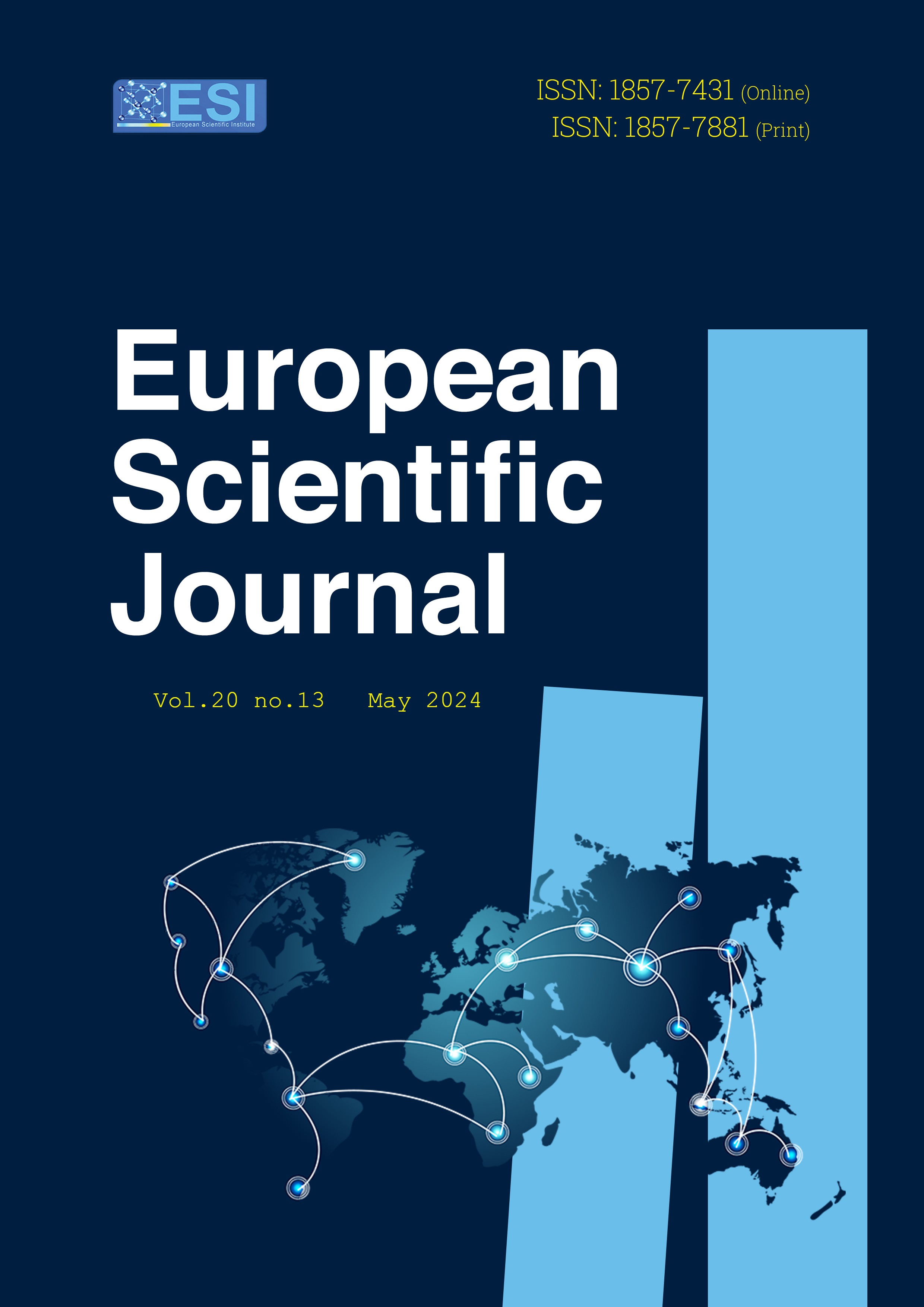Digital and Sustainable Trade Facilitation in Western Balkans Countries
Abstract
After the COVID-19 pandemic crisis in international economic relations, it became evident that climate-smart aspects should be considered when re-establishing a new international trade order. International organizations have proclaimed that this momentum should be used to include climate-smart trade and investment provisions to enable sustainable development. It has been acknowledged that trade has an important role to play in the global response to climate change, providing economies with tools to draw on in their efforts to mitigate climate change and adapt to its consequences. In this paper, we focus the analysis on investigating the digital and sustainable component of trade facilitation measures applied in Western Balkans countries. To evaluate the importance of trade facilitation measures and their digital and sustainable components we apply the standard gravity model with the data from the UN Global Survey on digital and sustainable trade facilitation. The results show that trade facilitation measures are important for improving and increasing trade among the Western Balkans countries. Especially, measures connected to improving transparency procedures in trade and measures for alleviating trade formalities are most significant for increasing bilateral trade among Western Balkans countries. With a lower level of importance are the measures for improving cross-border paperless trade between these countries.
Downloads
PlumX Statistics
References
2. Beverelli, C., Neumueller, S., The, R. (2015). “Export Diversification Effects of the WTO Trade Facilitation Agreement”. World Development 76, pp. 293–310. https://doi.org/10.1016/j.worlddev.2015.07.009.
3. Bjelić, P. (2018). Trade Facilitation in the Central European Free Trade Agreement (CEFTA): an imperative to boost intra-regional trade, UNCTAD Transport and Trade Facilitation Newsletter N°78 - Second Quarter 2018, Article No. 18, Internet, https://unctad.org/news/trade-facilitation-central-european-free-trade-agreement-cefta-imperative-boost-intra-regional.
4. Deardorff, A. V., Determinants of Bilateral Trade: Does Gravity Work in a Neoclassical World? (1995). NBER Working Paper No. w5377, Available at SSRN: https://ssrn.com/abstract=93748.
5. Duval, Y., Wang, T., Utoktham, C., & Kravchenko, A. (2019). Next-generation trade facilitation for Asian integration: Cross-border paperless trade. Journal of Asian Economic Integration, 1(1), 11-31.
6. Fernandes, A. M. & Hillberry, R. H. & Mendoza Alcantara, A. & Hillberry, R. H. (2015). Trade Effects of Customs Reform: Evidence from Albania (March 10, 2015). World Bank Policy Research Working Paper No. 7210, Available at SSRN: https://ssrn.com/abstract=2576526.
7. Fernandes, A. M. & Hillberry, R. H. & Berg, C. N. & Hillberry, R. H. (2016). Expediting Trade: Impact Evaluation of an In-House Clearance Program (June 20, 2016). World Bank Policy Research Working Paper No. 7708, Available at SSRN: https://ssrn.com/abstract=2811356.
8. Fontagné, L., Orefice, G., Piermartini, R. (2016). “Making (Small) Firms Happy. The Heterogeneous Effect of Trade Facilitation Measures”, Review of International Economics, Vo.28, Issue 3.
9. Hillberry, R. H. and Zhang, X. and Hillberry, R. H. (2015). Policy and Performance in Customs: Evaluating the Trade Facilitation Agreement, World Bank Policy Research Working Paper No. 7211, Available at SSRN: https://ssrn.com/abstract=2576527.
10. Jones, C. A. M. (2021). Critical Success Factors for Data Governance of Cross-border e-Trade Data Among ASEAN Member States. Journal of Asian Economic Integration, 3(1), 38-60.
11. Linder, S. B. (1961). An essay on trade and transformation (pp. 82-109). Stockholm: Almqvist & Wiksell.
12. Linnemann, H. (1966). An econometric study of international trade flows (No. 42). Amsterdam, North-Holland.
13. Marković, I., Popović Petrović, I. and Bjelić, P. (2021). Elimination of Non-Tariff Barriers in Regional Trade Integrations: The CEFTA 2006 Experience, Teme XLV, No.2, April – June 2021, pp. 601-620.
14. Moïsé, E., Sorescu, S. (2013). “Trade Facilitation Indicators: The Potential Impact of Trade Facilitation on Developing Countries’ Trade”, OECD.
15. OECD (2021). Competitiveness in Southeast Europe 2021: A Policy Outlook, Competitiveness, and Private Sector Development, OECD Publishing, Paris, https://doi.org/10.1787/dcbc2ea9-en.
16. Persson, M. (2013). “Trade Facilitation and the Extensive Margin. The Journal of International Trade & Economic Development” 22 (5): 658–93 https://doi.org/10.1080/09638199.2011.587019.
17. Tian, M. (2023). Study on the Development Path of Guangdong-Hong Kong-Macao Greater Bay Area and ASEAN Cross-Border E-Commerce Under the RCEP Framework. Economics & Management Information, 1-6.
18. Toshevska-Trpchevska, K., Makrevska Disoska, E., Kikerkova, I. & Tonovska, J. (2022). "Applying trade facilitation measures for increasing regional trade in Southeast Europe", 21st Scientific Conference dedicated to the 70th anniversary of the International Economic Relations and Business Department “The membership of Bulgaria in the European Union: Fifteen Years Later”, Vol.1, University of National and World Economy, Sofia, Bulgaria, 2023, 53-65.
19. Toshevska-Trpevska, K.; Tevdovski, D. (2016). Trade Facilitation Indicators and their Potential Impact on Trade between the Countries of South-Eastern Europe. Sci. Ann. Econ. Bus. 2016, 63, 347–362.
20. United Nations (2023). Digital and Sustainable Trade Facilitation: Global Report 2023. Available at: https://www.untfsurvey.org/.
21. United Nations ESCAP. (2023). Digital and sustainable trade facilitation in the Association of Southeast Asian Nations (ASEAN) 2023.
22. Volpe Martincus, C., Carballo, J., Graziano, A. (2015). “Customs”, Journal of International Economics 96 (1): 119–37. https://doi.org/10.1016/j.jinteco.2015.01.011.
23. Wilson, N. (2010). “Examining the Effect of Certain Customs and Administrative Procedures on Trade” in OECD Trade Policy Studies, Overcoming Border Bottlenecks: The Costs and Benefits of Trade Facilitation, Paris: OECD Publishing.
24. World Trade Organization (2015). World Trade Report 2015: Speeding up trade: benefits and challenges of implementing the WTO Trade Facilitation Agreement, Geneva.
25. World Trade Organization (2023). Trade Policy Tools for Climate Action, World Trade Organization, Geneva.
26. World Trade Organization (2015). “World Trade Report 2015—Speeding up Trade: Benefits and Challenges of Implementing the WTO Trade Facilitation Agreement”, WTO, Geneva.
Copyright (c) 2024 Katerina Toshevska-Trpchevska, Weng Chi (Florence) Lei, Viktor Stojkoski

This work is licensed under a Creative Commons Attribution 4.0 International License.








